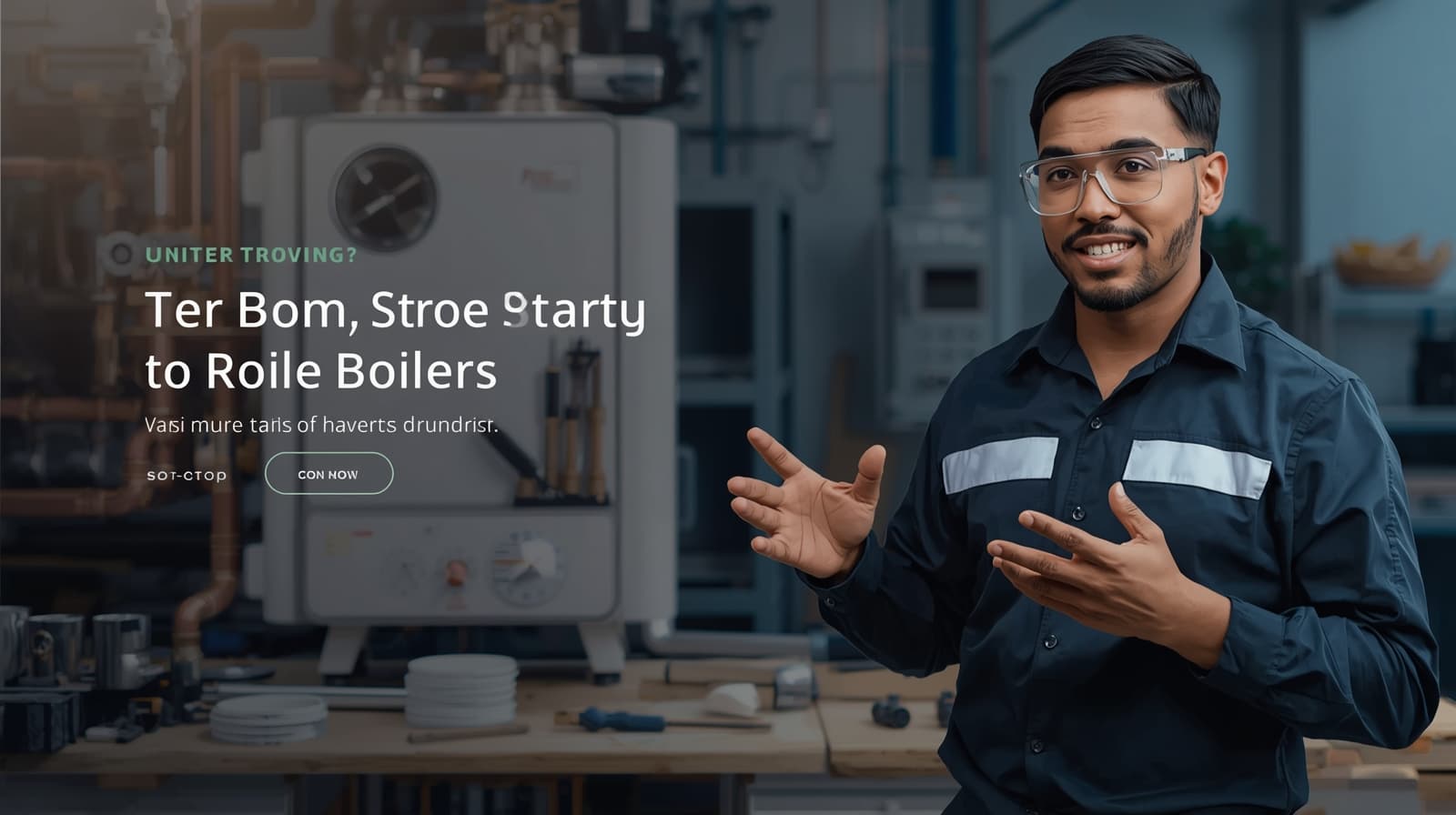Everything You Need to Know About Boilers: The Complete Guide for Homeowners and Businesses
5 min de lecture

Boilers have long been the heart of heating systems — whether in homes, apartment buildings, or industrial facilities. Yet, many people don’t fully understand how boilers work, what types exist, and how to choose the right one. In this article, we’ll explore everything you need to know about boilers — from their function and types to maintenance and energy efficiency.
What Is a Boiler?
A boiler is a closed vessel that heats water or another fluid to generate steam or hot water, which is then distributed through pipes for heating or industrial processes. Unlike furnaces that heat air, boilers provide radiant heat — a more consistent and comfortable warmth.
The heat produced by a boiler can be used for:
Central heating systems
Domestic hot water
Industrial processes (steam production, cleaning, etc.)
How Does a Boiler Work?
Boilers use energy from fuels like natural gas, oil, propane, biomass, or electricity to heat water. The process involves:
Fuel combustion: The burner ignites fuel to generate heat.
Heat transfer: The heat exchanger transfers this energy to the water.
Distribution: The heated water or steam moves through pipes to radiators or underfloor heating systems.
Return cycle: Once cooled, the water returns to the boiler to be reheated.
Modern boilers are equipped with smart controls and sensors that optimize performance, reduce fuel consumption, and ensure safety.
The Main Types of Boilers
Choosing the right boiler depends on your space, usage, and energy needs. Here are the most common types:
1. Combi Boilers (Combination Boilers)
Provide both hot water and central heating from one unit.
Ideal for small homes or apartments.
No need for a hot water cylinder or tank.
Highly efficient and compact.
2. System Boilers
Require a separate hot water cylinder but no water tank.
Perfect for medium to large homes with multiple bathrooms.
Provide strong water pressure and reliable hot water flow.
3. Conventional (Regular) Boilers
Use both a hot water cylinder and a cold water tank.
Suitable for older heating systems and homes with traditional setups.
Can supply water to multiple taps simultaneously.
4. Electric Boilers
Powered entirely by electricity instead of combustion.
Compact and environmentally friendly.
Best suited for smaller properties or places without gas connections.
5. Condensing Boilers
Capture and reuse heat from exhaust gases, improving efficiency by up to 90%.
Mandatory in many countries for new installations due to their eco-friendly design.
Why Efficiency Matters
Energy efficiency isn’t just good for the environment — it also saves you money. An old, inefficient boiler can waste up to 30% of energy, while modern condensing boilers can achieve efficiency ratings above 90%.
Upgrading to a high-efficiency boiler can:
Lower your energy bills.
Reduce carbon emissions.
Improve system reliability.
Qualify you for government incentives or rebates.
Common Boiler Problems and Maintenance Tips
Boilers are durable, but like any machine, they require regular maintenance. Here are some of the most common issues:
1. Low Pressure
Usually caused by water leaks or a faulty pressure relief valve.
Can be fixed by repressurizing the system.
2. No Heat or Hot Water
May result from broken thermostats, low water levels, or airlocks.
3. Strange Noises (Banging or Gurgling)
Often due to trapped air, limescale buildup, or faulty pumps.
4. Leaks and Drips
Must be addressed immediately by a qualified technician to avoid further damage.
✅ Maintenance Tip:
Schedule annual servicing by a certified professional to inspect safety devices, clean components, and check for gas leaks or corrosion.
When Should You Replace Your Boiler?
If your boiler is more than 10–15 years old, you might benefit from replacing it. Signs that it’s time for an upgrade include:
Rising energy bills
Frequent repairs
Uneven heating
Strange noises or leaks
A modern replacement can quickly pay for itself in energy savings and improved comfort.
How to Choose the Right Boiler
When selecting a new boiler, consider:
Fuel type (gas, electric, oil, biomass)
Size of your property and number of bathrooms
Heating demand and hot water usage
Energy efficiency rating
Installation cost and warranty
Consulting a heating specialist can help you find the most efficient and cost-effective system for your needs.
The Future of Boilers: Green and Smart Heating
As the world moves toward sustainability, the boiler industry is evolving. New technologies such as:
Hydrogen-ready boilers
Hybrid systems (boiler + heat pump)
Smart thermostats and IoT control
are transforming the way we heat our homes and businesses.
These innovations promise lower emissions, reduced costs, and greater comfort for future generations.
Final Thoughts
Boilers remain one of the most reliable and efficient heating solutions available. Whether you’re a homeowner looking to save on energy bills or a business owner managing a large facility, choosing the right boiler — and maintaining it properly — ensures years of warmth and peace of mind.
If you’re considering upgrading or servicing your boiler, ProChaudiere.com offers expert advice, professional installation, and high-quality products designed for durability and efficiency.
